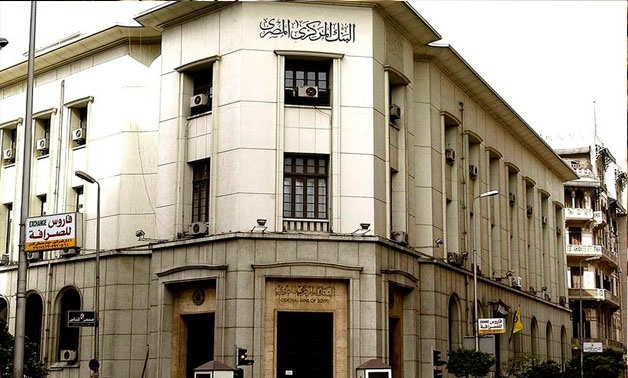
CBE - File photo
CAIRO, Aug 1 (Reuters) - Egypt's foreign reserves jumped by $4.73 billion to $36.04 billion at the end of June, the central bank said on Tuesday, their highest level since a 2011 political uprising drained the country of foreign currency.
Egypt has suffered an acute shortage of hard currency in recent years which has hampered its ability to purchase from abroad after tourists and foreign investors, key sources of dollars, fled the country.
But reserves have been steadily rising since it clinched a $12 billion three-year loan from the International Monetary Fund last year, helping to lure back capital the country needs to jumpstart growth after years of turmoil.
"This is the first time for the figure to exceed this level since the end of December 2010, when it was at $36.005 billion," the central bank said in a statement.
Reserves were only $19.041 billion at end-October, just before Egypt floated its pound currency, the opening salvo of a sweeping IMF-backed economic reform programme that also includes loosening capital controls, hiking taxes and slashing subsidies.
"The reason the reserves increased is the amount of inflows that happened during July and after the reform moves that we did by the end of June, which really contributed to the strong inflows during the month," Finance Minister Amr El-Garhy told Reuters.
The pound's value has halved since the flotation, pushing inflation above 30 percent in the import-dependent country but making assets such as Egyptian government securities relatively cheap for foreign investors, who have been snapping them up.
The central bank did not respond to requests for comment on what accounted for the more-than $4.73 billion increase, the largest in a single month since Egypt launched its reform programme, but the IMF in July disbursed a second loan payment of $1.25 billion.
Head of research at Naeem Brokerage Allen Sandeep said the jump was probably tied to the IMF payment and an improved trade balance, particularly after the close in June of the high-consumption holy month of Ramadan, when imports tend to spike.
Egypt's trade deficit has been steadily improving since the currency flotation, falling by 43.8 percent year-on-year in May as imports declined by $1.63 billion, according to statistics agency CAPMAS.
Increased production of natural gas in recent months following a slew of major discoveries has also begun to defray the cost of energy imports. Production has risen to about 5.1 billion cubic feet per day from about 4.4 billion last year.
Head of public debt at the Finance Ministry Sami Khallaf told Reuters that surging foreign buying of Egyptian treasuries did not account for the increase in July's reserves as these payments do not enter the central bank's net reserves.

Comments
Leave a Comment